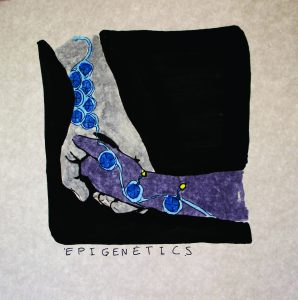Last fall, I got in a rather bizarre accident. It’s a long story, but it involves a trip to an apple farm, a hayride trailer carrying lots of innocent children I’ve probably scarred for life, and my head getting run over by a big rubber tire. Later, when I was sitting in the hospital, one of the doctors joked that I had eight lives left to live. Needless to say, I was getting pretty existential. I wondered how many potential resurrections lie inside one person and how I would lead those remaining lives. It all felt a bit like a Lifetime movie.
A couple of years before this happened, I read “The Opposite of Loneliness,” an essay by a Yale graduate named Marina Keegan. It’s an address to her own graduating class about maintaining a sense of possibility and an idealistic spirit, even as those possibilities seem to be narrowing as the real world fast approached. Keegan died five days after graduating, a tragedy that seems to make the work feel hollow.
Keegan’s story haunts me because her short life seemed so dedicated to that kind of “carpe diem” philosophy that she preached on the cusp of a life after college—the kind of philosophy that I’m afraid I need a near-death experience to remember. It’s so easy to be afraid at this time and to combat that fear by seeking the safe, easy paths that promise comfort and persistent validation. It’s so easy to forget that nothing is predestined.
Before I arrived at Georgetown, I was idealistic about what the college experience would have to offer me. I imagined an endless onslaught of intellectual stimulation and discovery, where I would easily find a tribe of passionate weirdos that shared my interests and had too many life-changing late-night conversations to count. The real thing wasn’t quite what I imagined. Everything was a little too polished and a little too regimented and goal-oriented to be the eccentric haven I’d dreamed of.
Though I eventually found my tribe and had those conversations, it took a lot of loneliness and wondering why I was wasting my young years doing work that didn’t excite me before I got to that point. Admitting that disappointment is something I’ve always been afraid to do, since receiving a Georgetown education is a privilege that shouldn’t be shrugged off.
Nevertheless, I think it’s a great betrayal of a liberal arts education to remain silent about its weaknesses. If college is meant to teach us how to think, then it should teach us to take risks with what we say and do. It should teach us to avoid the easy answer, to reject the most convenient conclusion. What I’m afraid Georgetown instills in many of its graduates is the opposite, promoting a tendency toward credentialism and risk-aversion at the expense of greater, less tangible, and easily listed rewards.
The consulting and finance industries continue to recruit Hoyas in steadily increasing droves, seducing them with high starting salaries and a straightforward application process. While there’s nothing inherently wrong with these industries, there’s something a little suspicious about 39 percent of the Class of 2014 following one of two similar paths. That’s a lot of potential that could be used in other ways. I’m not just talking about socially conscious or self-sacrificing pursuits; even creating a business or a product involves creativity and risk, the key element that people seem to be fleeing.
Graduation is the end of an era, the end of the years carved out specifically for learning and self-discovery. This is the time officially allotted to explore our interests, to dabble in weird and wonderful things that we might never have tried otherwise. After four years, it feels like we’re meant to have arrived at a definitive understanding of our world and our place in it. We’re meant to be fully crystallized, to have done all the necessary dabbling and be ready to get down to business. In many cases, that’s literal.
This worries me, because I see the people around me in constant motion and it seems like we’re all meant to be keeping up with a never-ending race. It’s hard to truly absorb everything and dabble in those weird and wonderful pursuits when we’re expected to be on this track to success, whatever that is. Truly knowing ourselves seems to be the result of sufficient time and freedom to experiment, to throw a lot of paint at a wall and see what sticks.
I know I’m definitely not done experimenting, and I’m definitely not a fully crystallized human prepped for all the slings and arrows the world is sure to throw my way. I’m OK with that, though. What I’m not OK with is the idea that that lacking certainty is somehow a character flaw, a failure that irrevocably sets me behind everyone with a more sharply defined and secure direction. What I’m not OK with is the idea of living a life driven by fear of failure. That kind of choice seems to be a greater risk than any crazy gamble we could possibly make at our young age.



